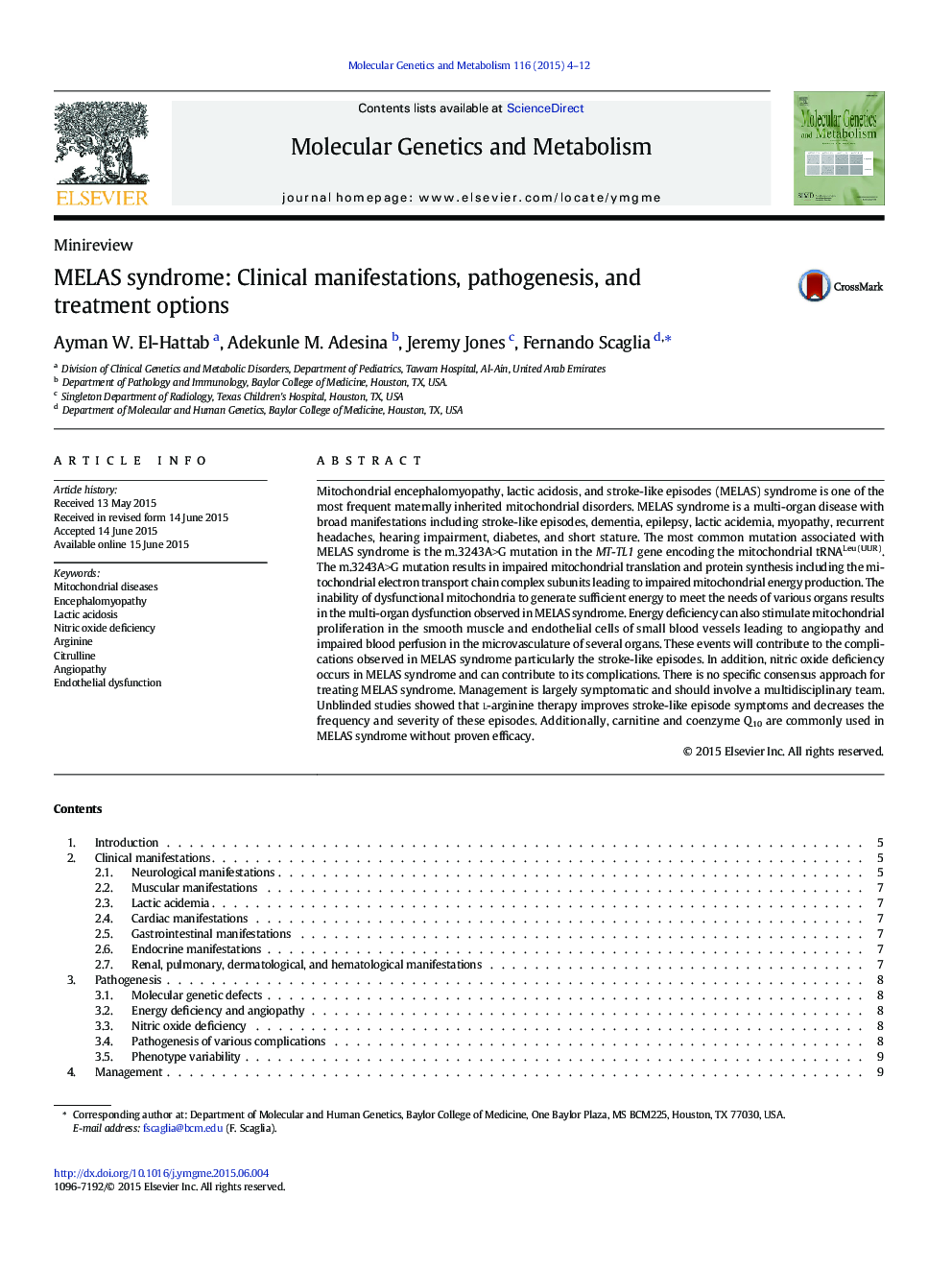| کد مقاله | کد نشریه | سال انتشار | مقاله انگلیسی | نسخه تمام متن |
|---|---|---|---|---|
| 8343734 | 1541558 | 2015 | 9 صفحه PDF | دانلود رایگان |
عنوان انگلیسی مقاله ISI
MELAS syndrome: Clinical manifestations, pathogenesis, and treatment options
ترجمه فارسی عنوان
سندرم ملز: تظاهرات بالینی، پاتوژنز، و گزینه های درمان
دانلود مقاله + سفارش ترجمه
دانلود مقاله ISI انگلیسی
رایگان برای ایرانیان
کلمات کلیدی
موضوعات مرتبط
علوم زیستی و بیوفناوری
بیوشیمی، ژنتیک و زیست شناسی مولکولی
زیست شیمی
چکیده انگلیسی
Mitochondrial encephalomyopathy, lactic acidosis, and stroke-like episodes (MELAS) syndrome is one of the most frequent maternally inherited mitochondrial disorders. MELAS syndrome is a multi-organ disease with broad manifestations including stroke-like episodes, dementia, epilepsy, lactic acidemia, myopathy, recurrent headaches, hearing impairment, diabetes, and short stature. The most common mutation associated with MELAS syndrome is the m.3243A>G mutation in the MT-TL1 gene encoding the mitochondrial tRNALeu(UUR). The m.3243A>G mutation results in impaired mitochondrial translation and protein synthesis including the mitochondrial electron transport chain complex subunits leading to impaired mitochondrial energy production. The inability of dysfunctional mitochondria to generate sufficient energy to meet the needs of various organs results in the multi-organ dysfunction observed in MELAS syndrome. Energy deficiency can also stimulate mitochondrial proliferation in the smooth muscle and endothelial cells of small blood vessels leading to angiopathy and impaired blood perfusion in the microvasculature of several organs. These events will contribute to the complications observed in MELAS syndrome particularly the stroke-like episodes. In addition, nitric oxide deficiency occurs in MELAS syndrome and can contribute to its complications. There is no specific consensus approach for treating MELAS syndrome. Management is largely symptomatic and should involve a multidisciplinary team. Unblinded studies showed that l-arginine therapy improves stroke-like episode symptoms and decreases the frequency and severity of these episodes. Additionally, carnitine and coenzyme Q10 are commonly used in MELAS syndrome without proven efficacy.
ناشر
Database: Elsevier - ScienceDirect (ساینس دایرکت)
Journal: Molecular Genetics and Metabolism - Volume 116, Issues 1â2, SeptemberâOctober 2015, Pages 4-12
Journal: Molecular Genetics and Metabolism - Volume 116, Issues 1â2, SeptemberâOctober 2015, Pages 4-12
نویسندگان
Ayman W. El-Hattab, Adekunle M. Adesina, Jeremy Jones, Fernando Scaglia,
